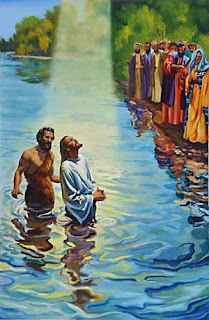Is The Gospel of Mark a Biography of Jesus Christ?
Can the gospel of Mark be
considered a biography of Jesus Christ? Some would answer affirmatively. Of
course it is. Is it not an overview of His life, ministry, crucifixion, and
resurrection? However, many others would say no. The Book of Mark does not meet
the basic criteria for a biography.
First,
let’s look at the definition of a biography. A biography, as defined by Webster’s
dictionary, is an
account of the life of something. So in this sense, yes. The Book of Mark
is a biography of Jesus Christ. Many would argue, however, that Mark skips over
several, key instances of Jesus’ life. This is a failure so egregious that it
completely changes the purpose of the book. For example, the Book of Mark does
not cover Jesus’ birth or childhood. Instead, it begins with Jesus’ baptism by
John the Baptist and the inception of His ministry.
Another
interesting issue with the Book of Mark is how often Mark uses the term “immediately”.
Some believe that the prevalent use of
the term is a testimony
to the faithfulness of God's servant. Or, in simpler terms, showcasing how
Jesus did God’s bidding immediately and without hesitation. Still others believe that the term “immediately”
was used to showcase the urgency with which Mark felt everyone should
respond to Jesus' calling.
Yet
another reason why the Book of Mark cannot be called a biography, is the speed
with which the author moves through the important points in the life of Jesus.
In fact, Mark is the shortest Gospel in the New Testament. Its brevity is important
to consider though. Mark does make note of the important teachings of Jesus,
such as the woman with the issue of blood (Mark 5:25-34), or the parable of the
growing seed (Mark 4:26-34), but he definitely does not spend a lot of time on
them. The swiftness with which he moves through the parables makes the Book of
Mark seem more like a quick overview of Jesus’ life, rather than a detailed
account.
Finally,
another point of contention with the use of the word “biography” in regards to
the Book of Mark is that the ending most readers are familiar with is not the
real ending at all. We see Jesus crucified, and we see them return to his grave
at the end of the third day, however, in the earliest manuscripts, the reader
does not see Jesus return and speak with his disciples. In fact, the Book of
Mark ends on Mark 16:8. In truth, the ending that most biblical readers are
familiar with and have accepted as sacred was added
much later. This new “ending” was added because later Christians felt the
end of Mark was insufficient and that a better conclusion was needed.
In conclusion, although the
Book of Mark is a great overview of Jesus’ life and ministry, it falls short of
accurately being called a biography. Mark does capture the essense of the
message Christians are asked to deliver to the world, but it does not offer a
complete and detailed analysis of Jesus’ life and, as such, cannot be called a
biography.



Comments
Post a Comment